
Royalty-free stock photo ID: 55843507
The savage murder of Saudi journalist Jamal Khashoggi in a Saudi consulate located in Turkey, followed by his dismemberment by bone saw, has generated worldwide horror and headlines, mostly centered on whether the Crown Prince of Saudi Arabia, Mohammed bin Salman (known as MBS for short), had directly ordered his killing.
The argument in the United States has split along moralistic and realistic lines, with the moral side stating that a state-sanctioned murder must be confronted, no matter how powerful the man who ordered it. The realist side states that confronting an ally as important as KSA would be like punching ourselves in the face. In effect, one man’s life – no matter how despicable and heinous the demise – is not worth the risk to our geopolitical interests.
In the words of Eric Trump, President Donald Trump’s son, “You cannot be executing journalists or anybody else,” Trump said. “[But] what are you going to do? You’re going to take [America’s history of trade and agreements with Saudi Arabia] and you’re going to throw all of that away?”
President Trump agrees. In a remarkable statement, he projects that it is irrelevant whether MBS had a hand in the killing or not – our relationship with KSA is simply too big to fail.
It is realpolitik at its most extreme. According to Trump, the Kingdom’s purchase of American-made weapons, its alliance against Iran, and its outsized control of the global oil markets take precedence over any death or transgression KSA may execute.
The statement made the morally driven side of the debate howl, but I will submit that the two are not diametrically opposed. Realpolitik is politics based on practical objectives vice any ideological or ethical considerations – and President Trump’s “America First” is direct reflection of that, but his considerations are ephemeral and short-term. True realpolitik would look at the long-term implications of the current engagement with KSA, and in so doing, would see that turning a blind eye to the murder is not in our national interest, regardless of current arms sales or an alliance against Iran.
This is not the first time the Unites States has ignored its own moral code in the Middle East for what was perceived as strategic national interests. We gave one country a blank check for armaments, selling it more arms than any other country as a bulwark against the Soviet Union in the region even as its ruler was a brutal, sadistic dictator. No matter how heinous the ruler acted, we propped him up, generating enormous hatred. The country was Iran, and the ruler, Shah Mohammad Reza Pahlavi, was overthrown by his own people in 1979, forming the Islamic Republic of Iran.
The first paragraph of President Trump’s statement has nothing to do with KSA, instead it details the crimes of the Islamic Republic of Iran, ending with this quote:
“Iran states openly, and with great force, “Death to America!” and “Death to Israel!” Iran is considered “the world’s leading sponsor of terror.”
Am I the only one who finds it ironic that we are now turning a blind eye to Saudi Arabia’s vicious transgressions so that it can help us confront Iran when it was exactly that sort of policy which led to the current animosity between the US and Iran? This isn’t the only example of such a policy eventually leading to disaster. Once Iran became a threat, after the fall of the Shah, we began to arm and help another dictator, ignoring his blatant savagery, because of his willingness to confront the Persian regime.
This time it was Saddam Hussein, and we continued to help him even after he used chemical weapons, shipping arms and providing intelligence during the Iran/Iraq war. He became so emboldened with our willingness to look away that he miscalculated and invaded Kuwait – using weapons we’d facilitated – leading to the first Gulf War and the current intractable mess.
This isn’t the first indication that MBS is a thug, it’s just the most blatant. He’s arrested anyone who opposes him in KSA, practically kidnapped the prime minister of Lebanon, holding him hostage until he agreed to resign, instigated a blockade of Qatar, continues a devastating war in Yemen – creating the greatest humanitarian crisis since WW II – and has generally acted as a despot as he’s consolidated the levers of power in the kingdom. Yes, he’s an ally now, but continuing to ignore his savagery will embolden not only him, but others on the world stage, and will likely end in failure. Hopefully, not with the entire country of Saudi Arabia spilling into the streets chanting “Death to America”.
Throughout our history, whenever we ignore the words in our own declaration of independence for short-term gains, we have ended up with long-term pain. Beyond the moral imperatives inherent in stopping brutal behavior, there is a reason we should strive to be, in President Reagan’s words, the “shining city on the hill” for the world. It’s because it’s in the best interest of the United States of America.
That’s true realpolitik.




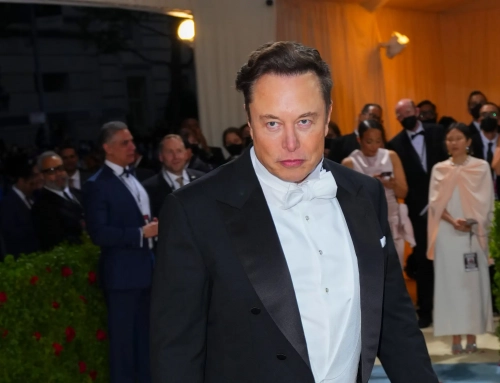
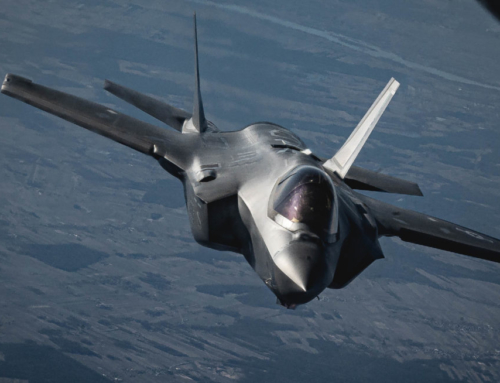
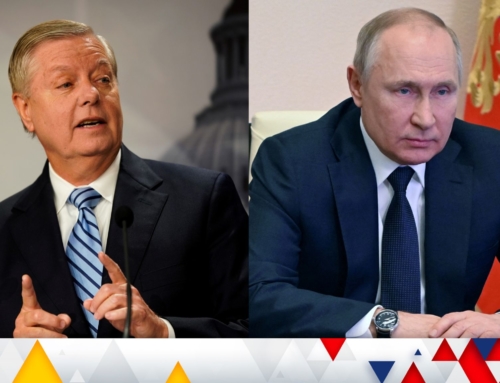

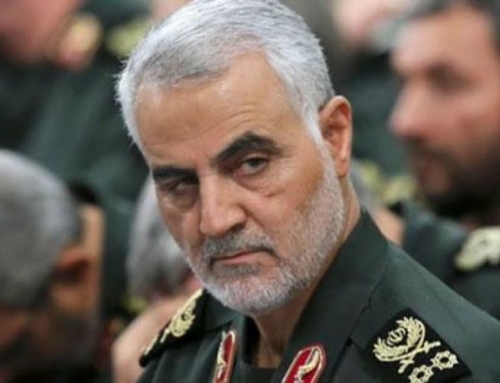
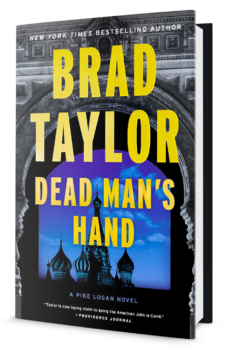
A classic example of what the folks in the Middle East live by…’The enemy of my enemy is my friend.”
When I want to get real political/world insights, I come here. Thank you.
And by the way, thank you for writing best in genre books. I love every one of them!
Brad, this might not be the place for it but…what are we doing in the Middle East? I mean, what’s our endgame? What does victory look like?
I’ve asked other Americans this same question and they don’t know the answer. I feel that politics has overshadowed the importance of our soldiers’ lives. But I wanted your take on it in case I’m completely in the wrong here.
I just finished my first read of your books, Ghosts of War, and I loved it. I will be reading more of them. I noticed a slight error on the last page of chapter 26. “Three seconds later the second missile left. The more, and another one launched.” The 4th and last missile would have left 3 seconds after that – a total of 9 seconds after the 1st, not 12 seconds. It’s a variation on the old riddle of how many pills do you in the 1st 24 hours if you have to take a pill every 8 hours. The answer is 5 because you take the 1st pill immediately, you do not wait 8 hours to take the first pill.
Well said.
I am 77 years of age and my husband is 86.
We are so appalled by the ignorance and repulsive behavior of the current incumbent of the White House and his averacious and equally repulsive famiily who have destroyed the prestigious respect which the world admired.
Thank you Brad for presenting the true.facts